
Stephen Simpson Hillage is an English musician, best known as a guitarist. He is associated with the Canterbury scene and has worked in experimental domains since the late 1960s. Besides his solo recordings he has been a member of Khan, Gong and System 7.
Ambient house is a downtempo subgenre of house music that first emerged in the late 1980s, combining elements of acid house and ambient music. The genre developed in chill-out rooms and specialist clubs as part of the UK's dance music scene. Pioneering artists in the genre included the Orb and the KLF, along with Global Communication, Irresistible Force, Youth, and 808 State. The term was used vaguely, and eventually fell out of favor as more specific subgenres were recognized.

System 7 are a UK-based electronic dance music band. Due to the existence of another band called System Seven they were initially billed as 777 in North America. System 7 was also the name of the current version of the Macintosh operating system at the time, although this was not the reason for the temporary name change.
Kristian "Kris" Weston is a British electronic musician, record producer and remixer best known for his work as a member of The Orb. Around the beginning of his career, he worked with Andrew Weatherall on remixes of Meat Beat Manifesto, remixed for Saint Etienne, U2 and others. He was still a teen when working on the first few albums by The Orb.
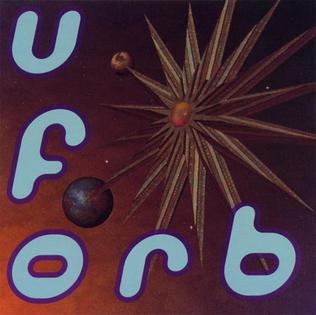
U.F.Orb is the second studio album by English electronic music group The Orb, released on 6 July 1992 by Big Life. Upon its release, the album reached No. 1 on the UK Albums Chart. AllMusic called it "the commercial and artistic peak of the ambient-house movement."

The Orb's Adventures Beyond the Ultraworld is the debut studio album by English electronic music group The Orb, released as a double album on 2 April 1991 by Big Life. It is a continuous, progressive composition evoking a two-hour psychedelic trip that draws from various genres and incorporates samples and sound effects. Much of the album was recorded after founding member Jimmy Cauty left the group, leaving Alex Paterson as the central member, with additional contributions by Andy Falconer, Kris Weston, and others.

Miquette Giraudy is a French keyboard player and vocalist, best known for her work in Gong, and with her partner Steve Hillage. She and Hillage form the core of the ambient band System 7. She has also worked as an actress, film editor and writer, in each role using different stage names.

Pomme Fritz is a mini-album by English electronic music group The Orb, released on 13 June 1994 by Island Records. Produced to sustain the group during a period of mismanagement, it was their first album with German producer Thomas Fehlmann, as well as their last with input from Kris Weston, who appears in a much diminished role as engineer. The chaotic Pomme Fritz moved the group away from their melodic, ambient sound towards a more abstract, experimental style, incorporating instances of noise, sampling, fragmented rhythms, industrial textures, indecipherable voices, and sound collage techniques. Island Records "hated" the album and "didn't understand it at all", according to group leader Alex Paterson.
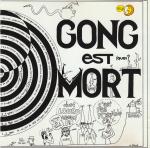
Gong est Mort, Vive Gong is a double live album by the progressive rock group Gong, recorded on 28 May 1977 at the Hippodrome, Paris, France, and originally released in 1977 as a double LP by Tapioca Records, France.

The Orb are an English electronic music group founded in 1988 by Alex Paterson and Jimmy Cauty. Known for their psychedelic sound, the Orb developed a cult following among clubbers "coming down" from drug-induced highs. Their influential 1991 debut album The Orb's Adventures Beyond the Ultraworld pioneered the UK's nascent ambient house movement, while its UK chart-topping follow-up U.F.Orb represented the genre's commercial peak.

System 7 is the first studio album by the dance/ambient band System 7.

La Vallée, also known as Obscured by Clouds, is a 1972 French film written and directed by Barbet Schroeder. The film stars Bulle Ogier as Viviane, a woman who goes on a strange and accidental voyage of self-discovery through the New Guinea bush.
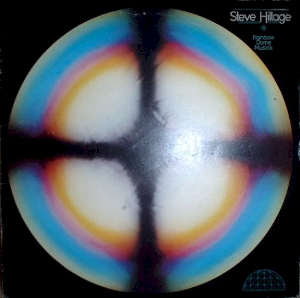
Rainbow Dome Musick is the fifth studio album by Steve Hillage, originally released in 1979. It is a departure from his previous albums, consisting of two long ambient songs recorded in collaboration with his long-time partner Miquette Giraudy.

Fish Rising is the debut solo album by English guitarist Steve Hillage, recorded and released in 1975.

Motivation Radio is the third studio album by British art rock musician Steve Hillage. Whilst touring in the United States in promotion of his previous album L (1976), Hillage grew disillusioned with the progressive rock tag attached to him by the media and fans, and disliked their attitude towards funk music, which Hillage was a big fan of. Hillage wanted to create a funk-influenced album as he was predominately listening to artists such as Funkadelic and Earth, Wind & Fire. Originally written as The Red Album in early 1977, it was retitled Motivation Radio prior to recording.

L is the second studio album by British progressive rock musician Steve Hillage.
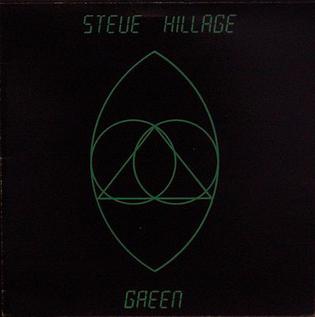
Green is the fourth studio album by British progressive rock musician Steve Hillage. Written in spring 1977 at the same time as his previous album, the funk-inflected Motivation Radio (1977), Green was originally going to be released as The Green Album as a companion to The Red Album. However, this plan was dropped and after a US tour in late 1977, Green was recorded alone, primarily in Dorking, Surrey, and in London.

BBC Radio 1 Live : Steve Hillage Live in Concert is a live album by British progressive rock musician Steve Hillage, originally recorded for the BBC at the Paris Theatre. Track 1 and 6 are from the performance at 4 December 1976 were produced by Jeff Griffin. The remaining tracks are from 28 April 1979 and produced by Chris Lycett.

Abolition of the Royal Familia is the sixteenth studio album by English ambient house duo the Orb. The album was released on 27 March 2020 via Cooking Vinyl. It includes contributions from Youth, Roger Eno, Gaudi, David Harrow, and Steve Hillage and Miquette Giraudy.
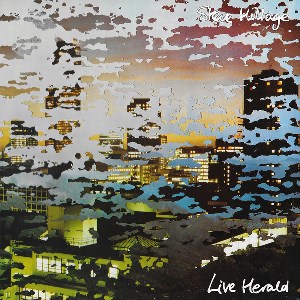
Live Herald is a part live, part studio album by British progressive rock musician Steve Hillage. The live tracks were recorded at several concerts in England between 1977 and 1978, and the studio tracks were recorded in 1979.



















